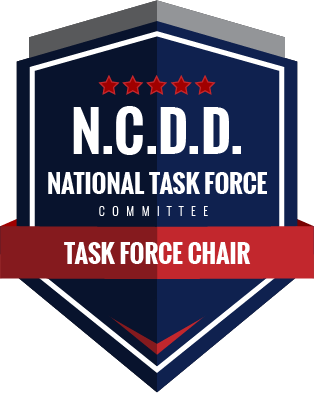OVERVIEW OF DUI LAWS IN NEVADA
In Nevada, driving under the influence (DUI) is defined as operating or being in control of a vehicle while impaired by alcohol or drugs. This impairment can stem from various substances, including prescription and over-the-counter medications. To assess a driver’s level of impairment, law enforcement officials evaluate their blood alcohol concentration (BAC), which measures the amount of alcohol present in the bloodstream.
- For individuals under 21 years of age, the legal limit is set at 0.02%.
- For drivers with a commercial license, the limit is 0.04%.
- For all other drivers, the legal BAC threshold is 0.08%.
It’s important to note that a driver can still face arrest and potential conviction for DUI even if their BAC is below the 0.08% limit.
If law enforcement determines that a driver is impaired due to alcohol or drugs, they may be charged with DUI regardless of the specific BAC measurement.
Additionally, a person does not need to be actively driving a vehicle to be charged with a DUI in Nevada. Simply being in “actual physical control” of the vehicle is sufficient for law enforcement to initiate DUI charges.
This means that if a person is found sitting in a vehicle with the keys in the ignition or otherwise in a position to operate the vehicle, they can be arrested for DUI.
Types of DUI Charges and Penalties in Nevada
In the State of Nevada, DUI offenses are classified into different categories based on the number of prior offenses and the circumstances surrounding each incident. Understanding these classifications is crucial, as they carry varying penalties.
- Jail Time: Offenders may face incarceration ranging from 2 days to 6 months, or they may be required to complete 48 to 96 hours of community service.
- Driver’s License Revocation: The offender’s driver’s license will be revoked for 90 days. After 45 days, they may apply for a restricted license, contingent upon DMV approval.
- Ignition Interlock Device: If the driver’s blood alcohol concentration (BAC) exceeded 0.18% at the time of arrest, they will be required to install a breath ignition interlock device for a period of three years. All associated costs for installation and monthly monitoring are the responsibility of the defendant.
- DUI School: Attendance at a Nevada DUI school is mandatory, with costs incurred by the offender.
- Substance Abuse Treatment: The court may order participation in a substance abuse treatment program.Fines: Mandatory fines range from $400 to $1,000.
- Fines: A minimum fine of $750 will be imposed, in addition to court and administrative fees.Jail or House Arrest: Offenders may face a minimum of 10 days in jail or may be subjected to 10 days of house arrest.
- Victim Impact Panel: Offenders are required to attend a victim impact panel to understand the consequences of their actions.
- Alcoholism Evaluation: A mandatory alcoholism evaluation will be conducted, and additional counseling may be required, regardless of the BAC level at the time of arrest.
- Vehicle Registration Suspension: The defendant’s vehicle registration will be suspended for five days.
- Prison Sentence: Offenders may face a prison term ranging from one to six years.
- Fines: Mandatory fines will range from $2,000 to $5,000.
- Driver’s License Revocation: The driver’s license will be revoked for three years, with the possibility of a restricted license after one year.
- Ignition Interlock Device: Offenders must install a breath ignition interlock device for a period of one to three years, with all associated costs covered by the defendant.
- Felony DUI Court: Participation in a felony DUI court for up to three years may be required, along with mandated substance abuse counseling and rehabilitation.
- SR22 Insurance Requirement: Offenders will be required to maintain an SR22 insurance policy in Nevada.
An aggravated DUI occurs when one or more aggravating factors are present at the time of the arrest.
- Causing Substantial Bodily Injury or Death
If you cause an accident that results in death or serious injury, you can be charged with an aggravated DUI. In such cases, you may also face felony DUI charges, which carry significantly harsher penalties than regular DUIs. - Transporting a Child Under 15 Years Old
If you are stopped for DUI and there is a child aged 15 or younger in the vehicle—regardless of whether the child is your own—you may be charged with an aggravated DUI. - Third DUI Offense Within 7 Years
If you are arrested for a DUI within seven years of having two prior DUI convictions, your current charge will be classified as aggravated.
The Legal Process
Being arrested for DUI in Las Vegas can be overwhelming and stressful, especially if you have been drinking. It’s common to feel confused about what’s happening during the arrest, booking, and jail process. However, there are steps you can take after your arrest to help your case. Here’s what you can expect:
The Traffic Stop
Your DUI arrest usually starts with a traffic stop. A police officer might stop you for a traffic issue, signs of erratic driving, or because they think you may be under the influence. During this stop, the officer will observe your behavior, speech, and appearance. If they suspect impairment, they may ask you to do field sobriety tests, like walking in a straight line.
Booking and Processing
At the station, you’ll go through the booking process. This includes taking your fingerprints, mugshots, and collecting personal information. You’ll also be asked to give up personal belongings, which will be returned to you upon release. Depending on your situation, you may need to stay in a holding cell until you’re sober or may be eligible for bail.
FIeld Sobriety and BAC Testing
If the officer thinks you’re driving under the influence, they may perform a roadside breath test to check your blood alcohol content (BAC). Depending on the test results, the officer may decide to arrest you for DUI.
In Nevada, you are required to submit to a breath, blood, or urine test after a lawful DUI arrest. Refusing the test can lead to an automatic suspension of your driver’s license.
Bail and Release
After booking, you might be able to post bail. Bail is money that allows you to be released while you wait for your court date. If you can’t afford bail, you may have to stay in custody until your first court appearance. Sometimes, the court may release you on your own recognizance, meaning you promise to show up at future court dates without needing to pay bail.
The arrest
If the officer arrests you, you’ll be handcuffed and taken to a police station or jail. They will formally charge you with DUI. The officer will also read your Miranda rights, informing you of your right to remain silent and your right to an attorney. It’s important to exercise these rights and avoid answering questions without your lawyer present.
The DMV HEARING
A DUI arrest in Nevada starts two legal proceedings: a criminal case and a civil case with the Nevada DMV. The DMV hearing decides if your license will be suspended. You only have seven days from the arrest date to request this hearing, so it’s important to act quickly. A DUI defense attorney can represent you at this hearing to protect your license.
Preparing for COurt
After release, you’ll get a court date for your arraignment, where you’ll enter a plea: guilty, not guilty, or no contest. If you plead not guilty, your case will move to pretrial steps and possibly a trial. Your attorney will gather evidence, review police reports, and create a defense strategy tailored to your case.Each of these steps is part of the process, and having a defense attorney by your side can make a difference in how your case moves forward.





